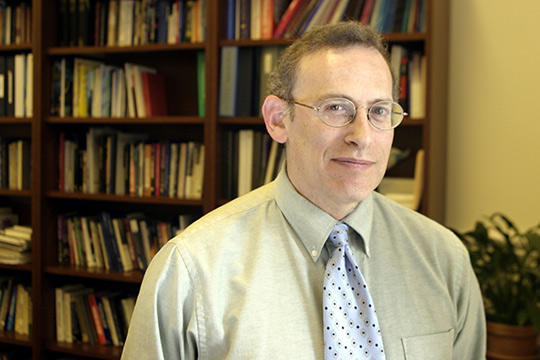“Hey Bill, have you seen this?” I turned to Bill Gaudelli, chair of Teachers College’s Department of Arts and Humanitiesand coordinator of the program preparing social studies educators.
“What’s that?” he asked. I showed him the screen of my iPad.
“It’s the latest version of the National Council on Teacher Quality’s ratings of teacher education programs. Look!” I said. “The College’s Graduate Secondary Education programs got a D+!”
Bill rolled his eyes. NCTQ has a history of getting things wrong, at Teachers College and elsewhere. Two years ago, NCTQ rated a non-existent undergraduate teacher preparation program at Teachers College, not understanding that Barnard College, Columbia University and Teachers College are independent but affiliated institutions. Things haven’t gotten much better; in its latest report,Path to Teach, NCTQ has a listing for Columbia University, and for Barnard, but not for Teachers College—even though Columbia has no graduate programs in teacher education.
“And look at your program, Bill!” I exclaimed.
Related: The trouble with NCTQ’s ratings of teacher-prep programs
One of the dimensions on which NCTQ rates undergraduate and graduate teacher education programs is their attention to content knowledge. “Will I learn enough about the subject areas I will teach?” is the question that the Path to Teach website asks. For social studies in particular, “Will I learn what I need to be a great social studies teacher?”
“There are no required content-knowledge courses in the social studies Ed.M. program at Boston University, nor in the streamlined 14-credit program for those TFA corps members who want state licensure only.”
Bill’s program got an F—“This program will not require you to take courses that ensure you get the knowledge you need in history, economics and government.”
“Oh, good!” Bill replied. “We’ve got the lowest grade in the College!” (The secondary education programs in math, English and science all got As.)
“You do actually require students to learn something about history, economics and government, don’t you?” I asked.
Bill nodded yes.
Related: Want to be rated ‘highly effective’ in New York? Don’t teach English or math in grades 4-8
The state of New York requires social studies teachers in grades 7-12 to have completed at least 30 undergraduate credits in social studies, including at least 21 in history, and at least one course in economics and one course in civics or political science. If a student enrolls without having met these requirements, he or she must complete this coursework in addition to the other coursework required for graduation from Teachers College before the College can recommend the student for initial state certification.
“… how can NCTQ know that the students have the requisite content knowledge? TFA’s website and application materials provide no purchase on corps members’ subject-matter knowledge.”
All of this is on the Teachers College website, and the state’s certification requirements are not exactly a secret. What was NCTQ thinking?
Maybe they were thinking that graduate programs in social studies education mainly consist of a bunch of methods courses that have nothing to do with subject-matter knowledge. That’s true of the Teach For America track in Boston University’s secondary social studies teacher preparation program. Most TFAcorps members seeking Massachusetts state certification enroll in a 36-credit master’s degree, which includes courses such as Teaching English Language Learners; General Methods of Instruction; Curriculum and Special Methods for History and Social Science, 5-12; and Special Education: Curriculum and Instruction. Important classes for prospective teachers, to be sure, but not concerned with basic knowledge of history, geography, economics or government. There are no required content-knowledge courses in the social studies Ed.M. program at Boston University, nor in the streamlined 14-credit program for those TFA corps members who want state licensure only.
Related: Did Arne Duncan bring American education, ‘kicking and screaming,’ into the 21st century?
NCTQ also rated the Teach For America program in Massachusetts, giving it an overall A grade for alternate secondary certification. As was true for Teachers College, there’s a rating for content knowledge. “Will the program make sure I know enough about the subject areas I plan to teach?” the Path to Teach website asks. Why, yes! “This program will verify that you have enough knowledge of your subject areas to teach them well.” All of these subject areas collectively are given an A grade.
But how can NCTQ know that the students have the requisite content knowledge? TFA’s website and application materials provide no purchase on corps members’ subject-matter knowledge.
So: The social studies education program at Teachers College, one of the nation’s most well-known graduate schools of education, with clear curricular content requirements, is given a failing grade by NCTQ. An alternative teacher preparation program, Teach For America Massachusetts, with no documented curricular content requirements for any subject area, is given an A.
It’s as if there’s a political agenda.
This story was produced by The Hechinger Report, a nonprofit, independent news website focused on inequality and innovation in education. Read more about high school reform.
